Build Back Better: Toward a Visual Strategic Plan for Successful Emergence from COVID-19 – The Case of Israel Part III
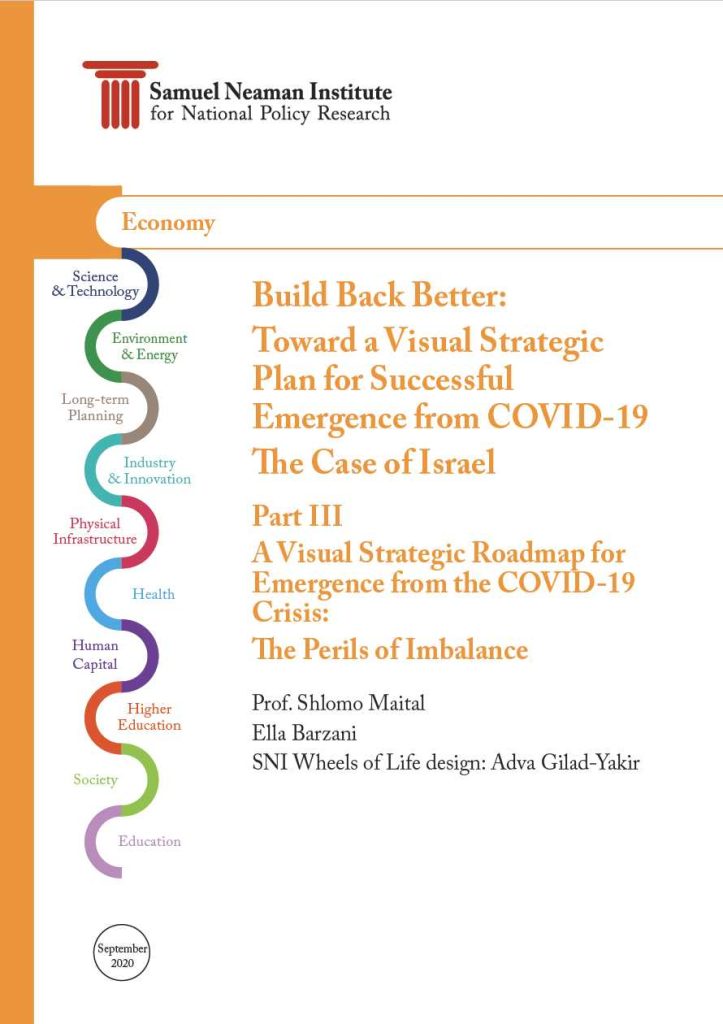
This report is Part III of a three-part research paper, Build Back Better: Toward A Visual Strategic Plan for Successful Emergence from COVID-19 – the Case of Israel. In this essay we propose a strategic long-run plan for Israel, as it emerges from the COVID-19 pandemic. employing a visual approach for benchmarking economic, social and […]
Build Back Better Toward a Visual Strategic Plan for Successful Emergence from COVID-19 – The Case of Israel Part II. SWOT Analysis A Global Benchmarking Study of Israel
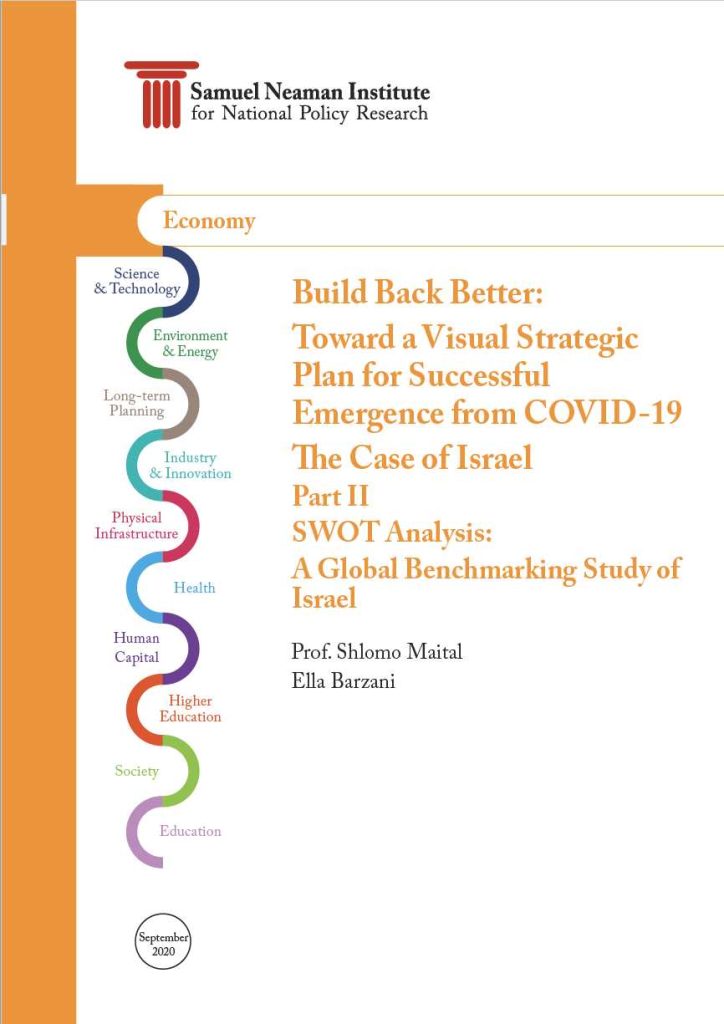
This report is Part II of a three-part research paper, Build Back Better: Toward A Visual Strategic Plan for Successful Emergence from COVID-19 – the Case of Israel. In it we present a SWOT analysis of Israel’s strengths and weaknesses, risks and opportunities, based on global benchmarks. It is based on a new book by […]
Build Back Better Toward a Visual Strategic Plan for Successful Emergence from COVID 19 The Case of Israel Part I
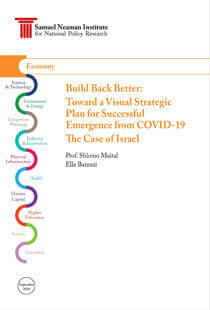
This three-part research paper proposes a strategic long-run plan for Israel, as it emerges from the COVID-19 pandemic. It is based on three key sources: a landmark pre-pandemic UN report, on how nations can build back better after natural disasters, along with related research, (See Part I), a new book by Ruchir Sharma, 10 Rules […]
From M&Ms to Teabags: Lessons from Low-Tech Innovators
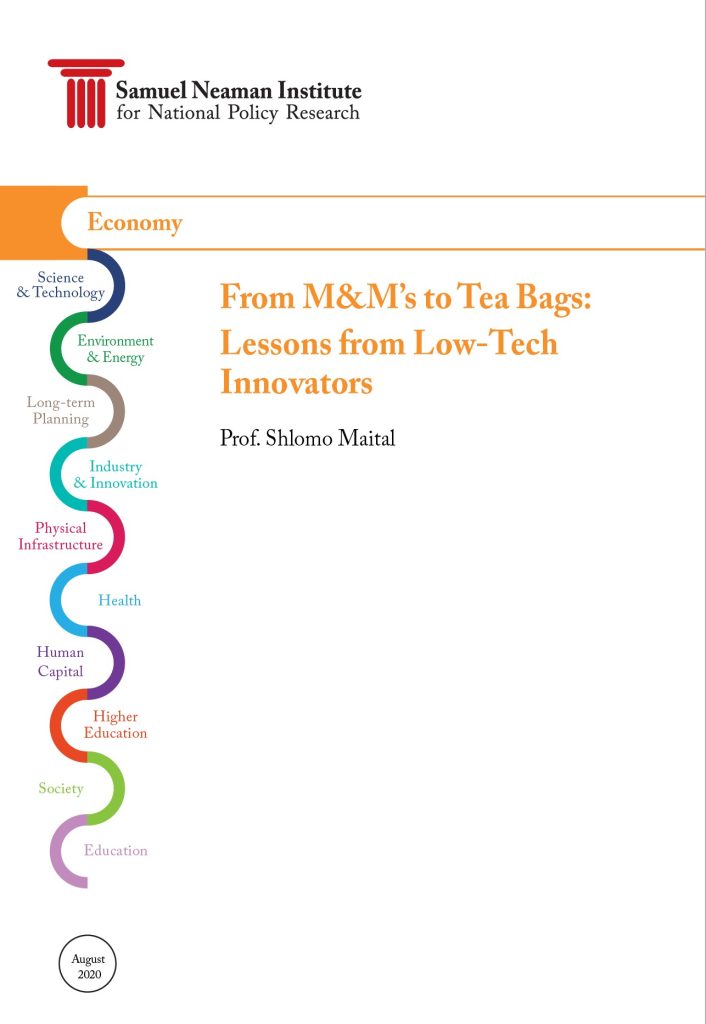
This study recounts the stories of some 11 creative innovations, from the world of low-tech, from M&Ms to teabags, and draws key insights from them
Towards a New Fiscal Policy for Israel: Balancing Budgetary Responsibility and Societal Needs
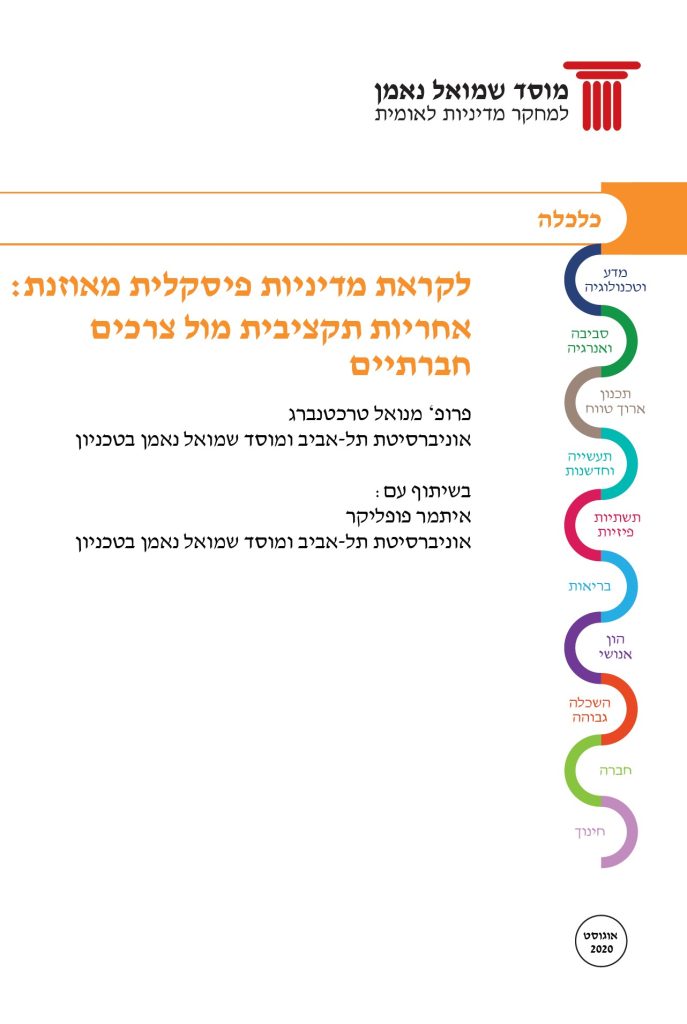
This paper was originally written before the COVID-19 crisis, and therefore it does not address the current challenges facing the Israeli economy due to this severe crisis. However, long-term processes that occurred before the crisis require a reassessment of the economic policies that had prevailed until then. We will refer to the current period in […]
Reforming the legislative process in the Knesset: “House of Cards” or House of Legislature?
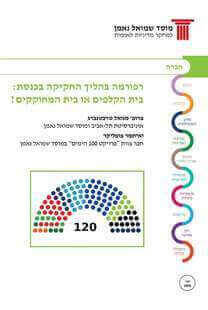
We lay out here a proposal for reforming the rules of the game that govern the behavior of the members of the Knesset (MK’s), in light of the diminished trust of the public in the Knesset. We identify three main failures: the lack of real debate, the fact that MK’s don’t seek wide consensus but […]
Preparedness of Ultra-Orthodox Population in Israel toward Earthquakes and Emergency Situations
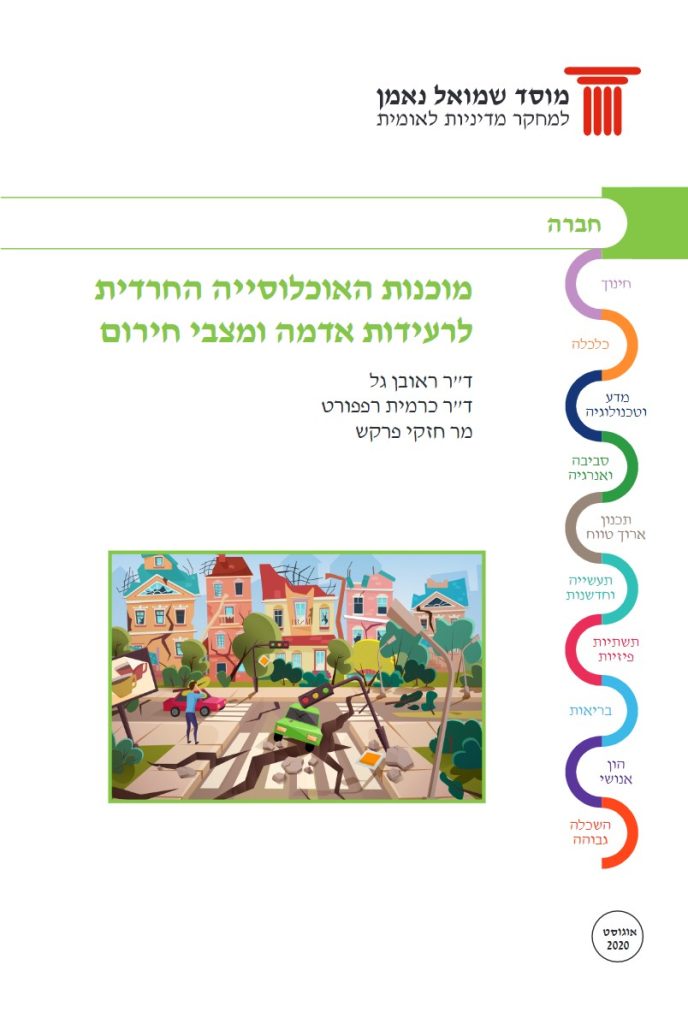
Sample groups (N=692) within various Haredim (Ultra-Orthodox) communities in Israel were surveyed in order to examine their perceptions, awareness and preparedness towards emergency situations, with special focus on earthquakes. In addition, several in-depth interviews were conducted with senior decision-makers in the area of emergency and with several opinion-leaders within the U-O community. The results of […]
Violence, Crime and Policing in Arab Society: Personal and Community Security Index- 2019
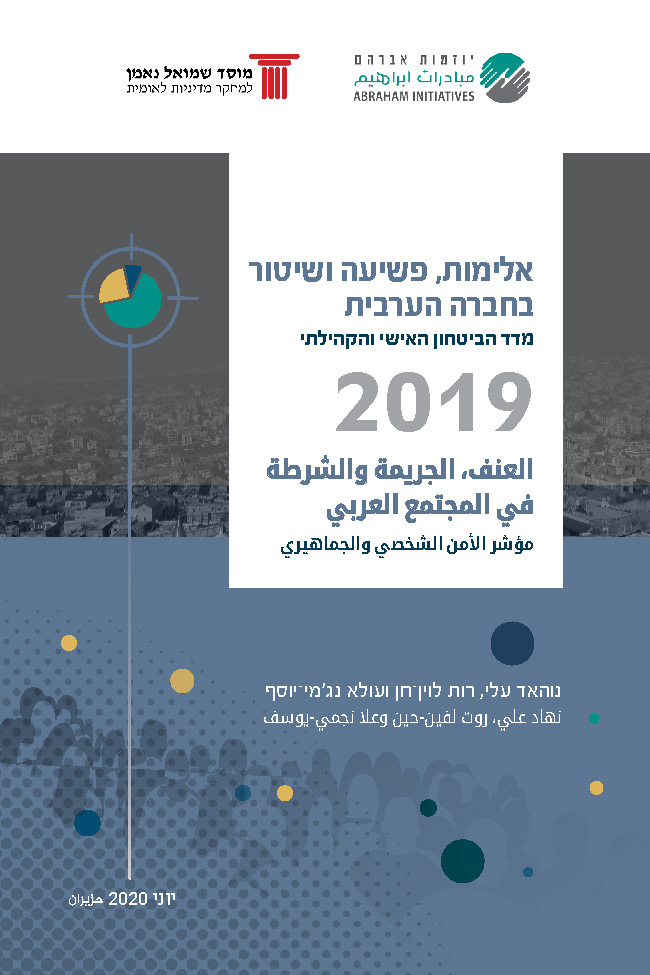
Link to the full Report The 2019 Personal Security Index is the third report issued on the subject of violence, personal security, and policing in Arab communities in Israel. The index was launched in recognition of the alarming reality in Arab society, which has reached new peaks in recent years. Every year we see a […]
Private electric transportation readiness guide for municipalities – 2nd Edition
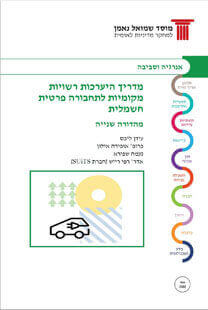
Electric mobility fundamentally changes the demand patterns of energy used for the transportation of people and goods, which is a vital share of any modern economy. The gradual replacement of internal combustion engine (ICE) vehicles with electric vehicles (EVs) is expected to carry broad implications over the energy sector, as well as both the natural […]
Academy interface- education in schools as an engine for systemic change
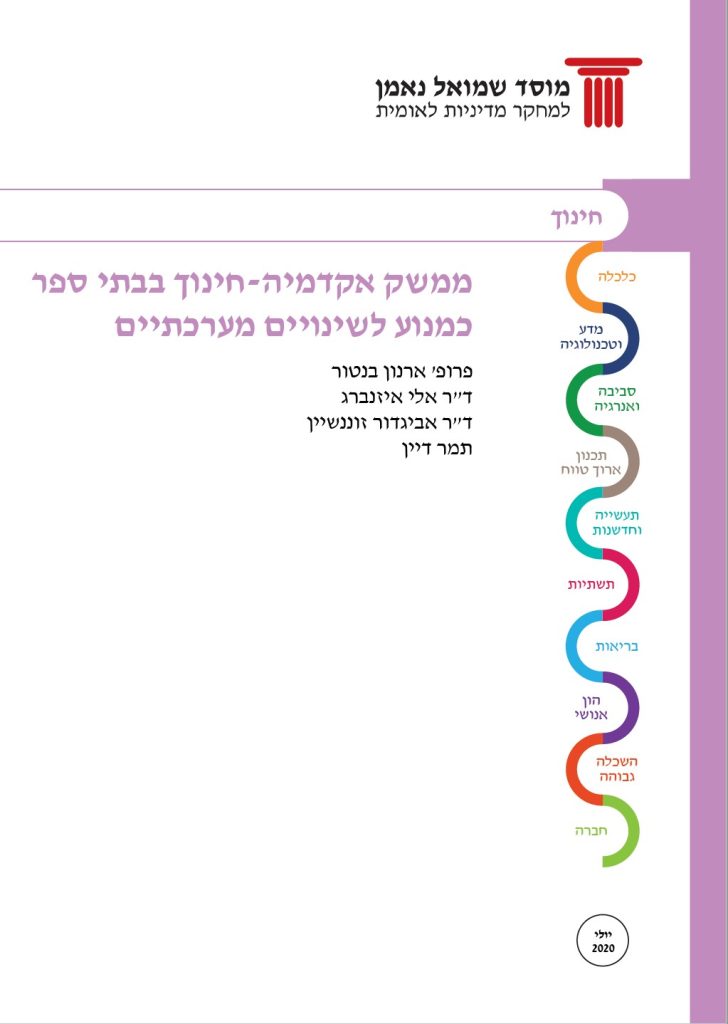
In order to advance education for acquiring 21st century skills an efficient process needs to be established which is a challenge to the whole education chain, schools as well as academia. The report proposes mode of operation which is based on changes at the school-academia interface. The concepts relies on evidence that screening and acceptance […]
